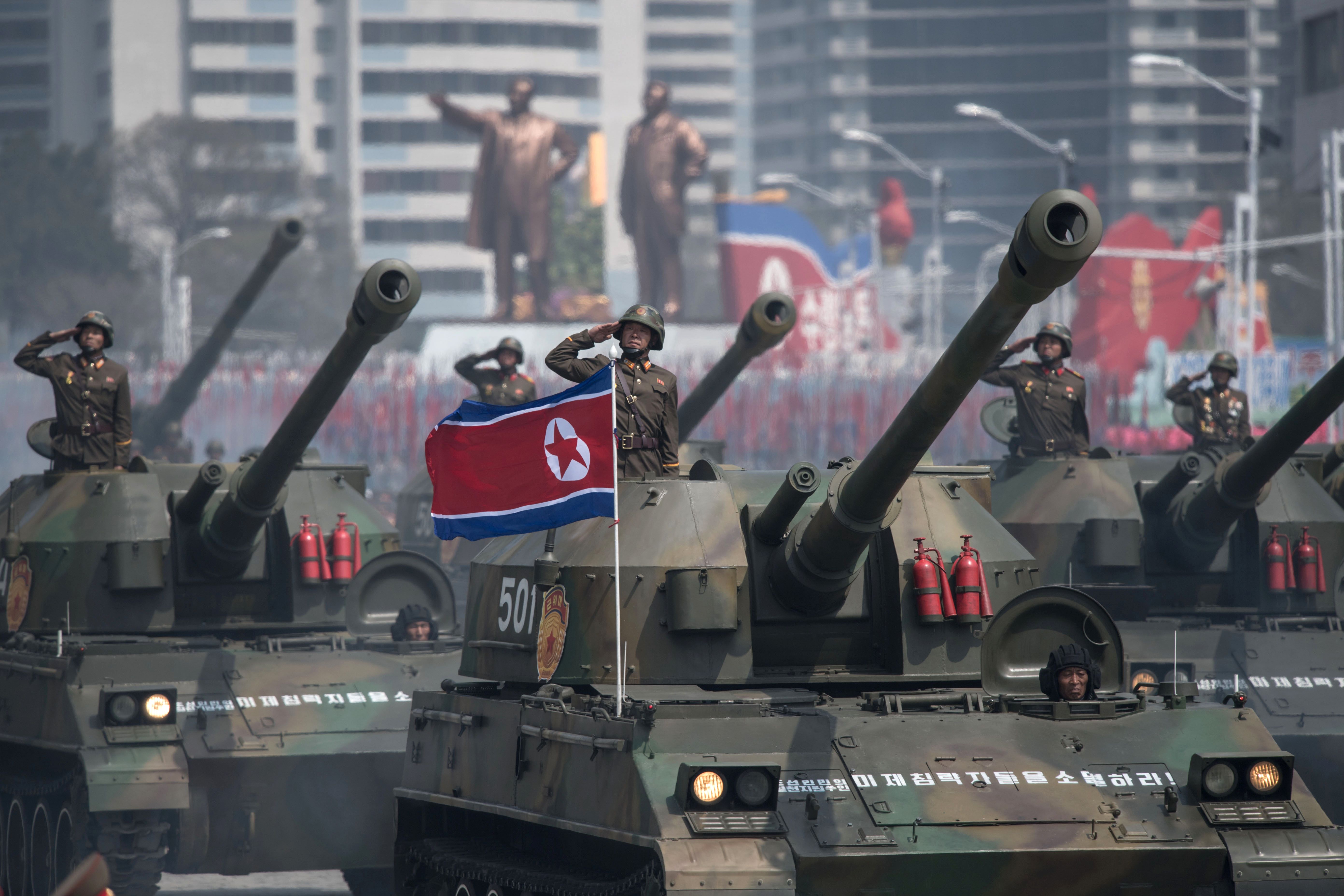Why President Trump is in no rush to attack North Korea
Despite the administration's tough words for Kim Jong Un, a military option is not our best option


A free daily email with the biggest news stories of the day – and the best features from TheWeek.com
You are now subscribed
Your newsletter sign-up was successful
There's been a lot of tough talk circulating in the last few days about how America plans to respond to North Korea's growing nuclear threat, prompted in part by the country's sixth nuclear test on Sunday. Secretary of Defense James Mattis responded to the test by saying that "any threat to the United States, or its territories — including Guam — or our allies will be met with a massive military response, a response both effective and overwhelming." President Trump recently threatened North Korea with "fire and fury like the world has never seen."
But despite all the posturing, know this: The Trump administration is not going to war against North Korea. Period.
Of course, you could be forgiven for thinking otherwise. What seems to be throwing everyone into a tizzy is Mattis' use of the word "threat." What, exactly, constitutes a threat? If North Korea makes verbal threats — which seems inevitable — will we attack? Will Washington and its allies strike if North Korea tests another ICBM, which reports now suggest could occur as early as Saturday?
The Week
Escape your echo chamber. Get the facts behind the news, plus analysis from multiple perspectives.

Sign up for The Week's Free Newsletters
From our morning news briefing to a weekly Good News Newsletter, get the best of The Week delivered directly to your inbox.
From our morning news briefing to a weekly Good News Newsletter, get the best of The Week delivered directly to your inbox.
Some took Mattis' statement to mean Washington could launch an attack at any moment, for almost any reason. That's a scary thought, especially considering that Pyongyang regularly threatens to nuke America. Indeed, they've made threats like this for years, and those threats should be ignored as pitiful propaganda.
But here's the truth: If we look at America's military options, especially when it comes to eliminating North Korea's nuclear program, they are all pretty lousy.
For starters, you would need to amass a much larger amount of military firepower in the Asia-Pacific region to ensure you have the assets needed to have a shot at such a goal. That means more bombers, aircraft carriers, attack submarines, and missile defense batteries moved into the region. The challenge is all of this would be highly visible, allowing Kim Jong Un to strike first, potentially with nuclear weapons, knowing he is in a "use them or lose them situation."
Supposing Kim does not strike first and America manages to successfully build and launch a massive strike on North Korea from the air and sea, targeting Pyongyang's nuclear weapons program and ability to produce such platforms, then what happens?
A free daily email with the biggest news stories of the day – and the best features from TheWeek.com
For such a strike to be effective, it needs to have a 100 percent success rate. If you miss just one or two atomic bombs, Kim has every incentive to use what he has left on the biggest targets he can find. And that could mean the death of millions of people in Seoul, Tokyo, or even Los Angeles.
From there, it all goes to hell. Even if Washington and its allies took out every single nuclear weapon in Kim's arsenal, Pyongyang has plenty of other ways to kill hundreds of thousands of people on the Korean Peninsula and in Northeast Asia. For example, we know Pyongyang has nasty chemical agents, like VX, and Kim could shower South Korea and Japan with such weapons.
And then there is the proverbial gun pointed at the capital of South Korea: 10,000 artillery tubes and scores of long-range rockets that could kill scores of people. Imagine the Lotte Tower in Seoul, standing tall at 1,821 feet, tumbling down, and the horrific loss of life that would ensue. Bearing in mind the thousands of shells that could be fired, this could be just the opening acts of a brutal war.
So, for now, a military option is not our best when it comes to dealing with North Korea. Instead, we have to find ways to control the threat. Our best hope for that is to cut Pyongyang off from the rest of the planet.
President Trump should sanction any nation, company, or individual that does illegal business or launders money for Kim. Keep in mind, North Korea's economy is one-third the size of Ethiopia, so if we can shrink the amount of money going into the country, we can by default diminish the amount of resources Kim has for more nukes and missiles. And if China won't enforce the sanctions, or continues to use its own banks to carry water for Kim, its financial entities should be sanctioned, or cut out of the U.S. financial system altogether.
We should also increase dramatically the amount of missile defenses we have in Asia and at home while developing new systems as North Korea advances its military might.
Sadly, none of the more measured options above will rid the world of North Korea's nuclear or missile programs. Only a deadly war, the kind this planet has not seen since the last Korean War, can do that. And that is a risk we simply cannot take.
Harry J. Kazianis is director of defense studies at the Center for the National Interest, founded by former U.S. President Richard M. Nixon.
-
 Local elections 2026: where are they and who is expected to win?
Local elections 2026: where are they and who is expected to win?The Explainer Labour is braced for heavy losses and U-turn on postponing some council elections hasn’t helped the party’s prospects
-
 6 of the world’s most accessible destinations
6 of the world’s most accessible destinationsThe Week Recommends Experience all of Berlin, Singapore and Sydney
-
 How the FCC’s ‘equal time’ rule works
How the FCC’s ‘equal time’ rule worksIn the Spotlight The law is at the heart of the Colbert-CBS conflict
-
 Epstein files topple law CEO, roil UK government
Epstein files topple law CEO, roil UK governmentSpeed Read Peter Mandelson, Britain’s former ambassador to the US, is caught up in the scandal
-
 Iran and US prepare to meet after skirmishes
Iran and US prepare to meet after skirmishesSpeed Read The incident comes amid heightened tensions in the Middle East
-
 Israel retrieves final hostage’s body from Gaza
Israel retrieves final hostage’s body from GazaSpeed Read The 24-year-old police officer was killed during the initial Hamas attack
-
 China’s Xi targets top general in growing purge
China’s Xi targets top general in growing purgeSpeed Read Zhang Youxia is being investigated over ‘grave violations’ of the law
-
 Panama and Canada are negotiating over a crucial copper mine
Panama and Canada are negotiating over a crucial copper mineIn the Spotlight Panama is set to make a final decision on the mine this summer
-
 Why Greenland’s natural resources are nearly impossible to mine
Why Greenland’s natural resources are nearly impossible to mineThe Explainer The country’s natural landscape makes the task extremely difficult
-
 Iran cuts internet as protests escalate
Iran cuts internet as protests escalateSpeed Reada Government buildings across the country have been set on fire
-
 US nabs ‘shadow’ tanker claimed by Russia
US nabs ‘shadow’ tanker claimed by RussiaSpeed Read The ship was one of two vessels seized by the US military
